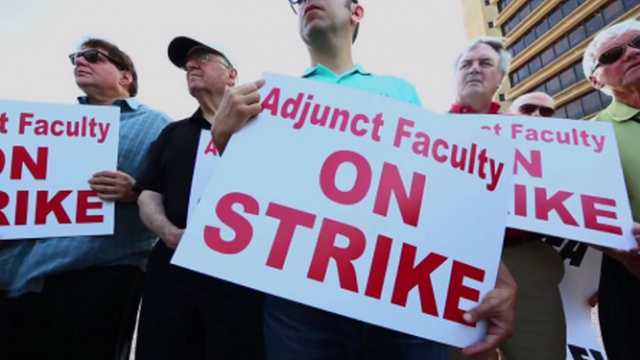By: Nick Eberhart
A series of repetitive questions dominates college social interactions. Questions about your major, hometown, and spring break plans all neatly punctuate different times of the year. After the end of spring break, the one question that seems to reign supreme is “What are you doing this summer?” For many career-minded students, the answer to this question will entail an unpaid internship in their field of choice. The end goal from a summer on Capitol Hill, at the local law firm, or shadowing a doctor is generally the same, to pave the way to a job after graduation. Universities and advisers enforce this belief by telling students to pursue internships in order to establish career connections and possibly find a full-time job. While the logical connection between an internship and paid position seems explicit, the data on such a relationship and the questionable legality of unpaid internships cast doubt on this assumed relationship. Current students consider the eventual benefits of an unpaid internship, but post-recession graduates find themselves more vulnerable than their younger counterparts.
Unpaid internships have existed for decades but the Great Recession of 2007 vastly increased the prominence of these positions in the American workplace. In fact, in 2012 around one-third to one-half of all 1.5 million U.S. internships were unpaid. These positions are widely touted for their ability to help students transition from academic to professional environments and to get a foot in the door of top employers with the end goal of a full-time position. A 2012 memo by the National Association of Colleges and Employers (NACE) showed that the percentage of students receiving full time job offers after graduation was 36% for all students and 37% for students had completed unpaid internships. In stark contrast to this negligible difference, however, is the fact that 60% of paid interns in the study received full time offers. In addition to these unpromising employment statistics, recent investigations into abuse of interns by employers cast additional doubts about the legality of unpaid internships as a component of the American labor force.
Currently, the Fair Labor Standards Act (FLSA), the labor protection act that introduced a maximum workweek, overtime, and an established national minimum wage, does not protect unpaid interns. A 1947 case interpreting this act draws a distinction between unpaid “trainees” and paid “employees” by establishing a list of six criteria to establish when a worker is a trainee. Under these criteria, the trainee receives more benefit from the internship than does the employer and the internship is performed without expectation of a future job or compensation. To respond to growing concern over abuse of unpaid interns, the Department of Labor further clarified these criteria as they relate to modern unpaid interns but no policy change has yet occurred. Recent lawsuits such as the class action suit against Fox Searchlight Pictures allege that despite the existence of these criteria, many companies are using unpaid interns as a source of free labor with no expectation of teaching these interns specific industry-related vocational skills.
The case against Fox illustrates the conflict that many unpaid interns face when they are asked to perform menial tasks of little benefit to them but of reasonable benefit to the employer. In the Fox case, this inappropriately uncompensated work included janitorial duties, bookkeeping, and production assisting. Most unpaid interns named in the suit, like most students, fear that they will face negative reputational effects if they decline to perform these basic tasks. In an uncertain labor market, unpaid interns often choose not to report illegal labor abuses but to continue working in hopes that their efforts now will yield future benefits.
Unpaid internships also present equity concerns as only students with sufficient economic resources may take on unpaid work for extended periods. Socioeconomic class disputes aside, unpaid internships do allow for students to gain a varying degree of experience with the slight possibility of career advancement. Although recent statistical and legal analysis of unpaid internships suggests that these positions are not a worthwhile time investment, close to one million interns will still accept such opportunities this summer.
If one does decide to take such an offer, then a list of criteria should be considered to determine whether the internship is legal and if it will be of future benefit to the intern. A potential intern must consider who will gain more from the internship, the intern or the employer? If the true answer to this question is the intern and expectations are discussed at the beginning of such an experience, then one will have the chance to gain an enriching educational experience in a vocational setting. If not, then an intern would likely be better off spending the summer in one of a multitude of alternative opportunities such as study abroad, part-time work, or community service. Unpaid internships remain legally ambiguous areas that present both risks and measurable benefits. With so much variation in the internship market, the responsibility falls on both the intern and employer to set reasonable and legal expectations to ensure that such an internship provide the benefit so badly needed by students in this difficult economic period.
